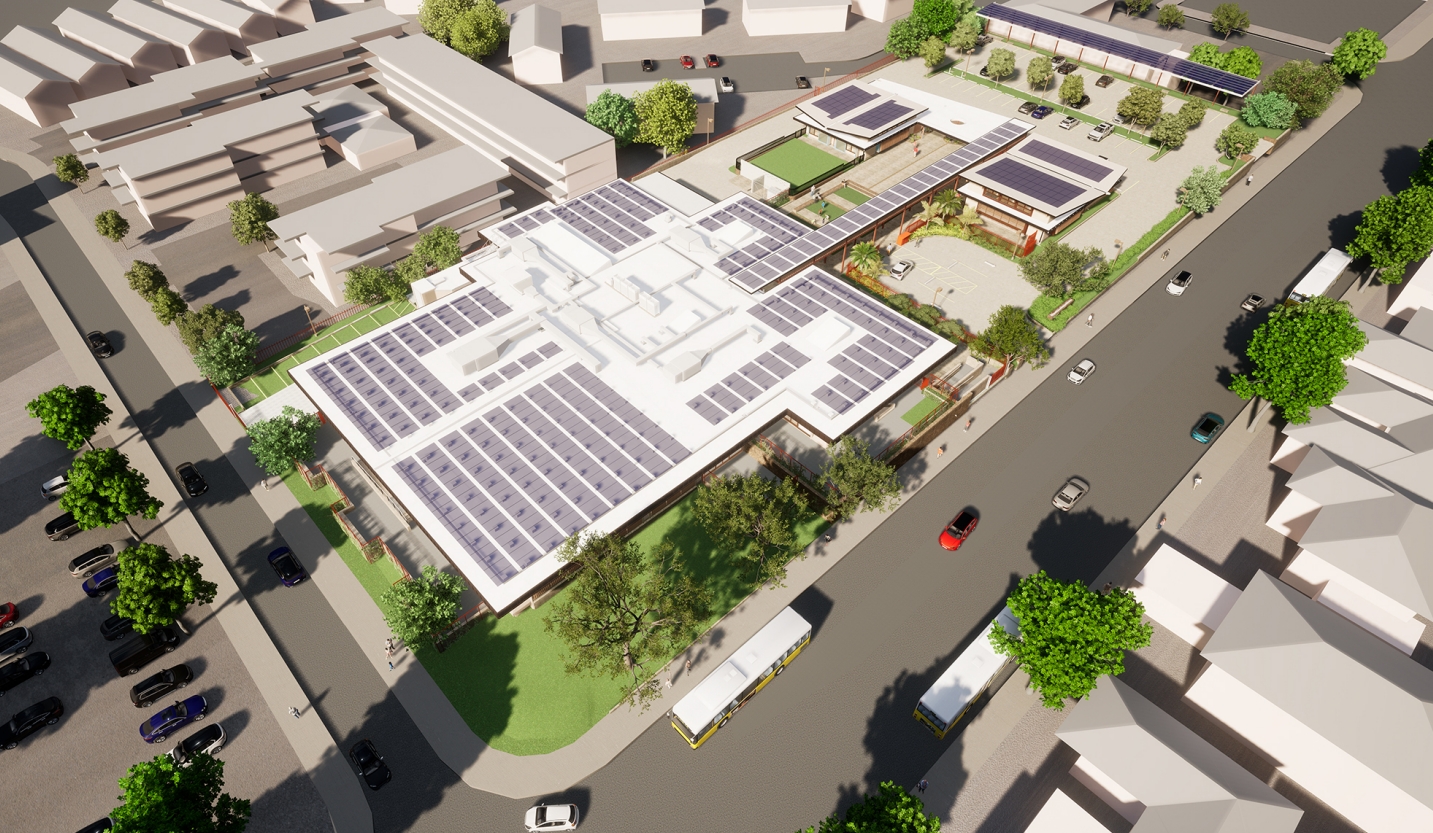GOVERNOR JOSH GREEN, M.D. JOINS NATIONAL BUILDING STANDARDS COALITION TO IMPROVE BUILDINGS AND LOWER ENERGY COSTS
HONOLULU, HI — Governor Josh Green, M.D., today announced that Hawaiʻi has joined forces with state and local governments across the country in the National Building Performance Standard (BPS) Coalition, a collaboration led by the nonprofit Institute for Market Transformation. Hawaiʻi’s commitment, supported by Hawaiʻi House Representative Nicole Lowen, augments an $18 million commitment from the federal government in September 2024 that will improve building standards for large commercial buildings that are responsible for 78% of the state’s commercial building emissions.
Upgrading and retrofitting buildings to increase efficiency also increases affordability and can dramatically reduce harmful air pollution. At the same time, energy retrofits and upgrades can be leveraged to improve a building’s health and resilience for its occupants, while generating jobs and increasing local economic investment. Through the coalition, the state of Hawaiʻi commits to initiating state building retrofits that prioritize energy efficiency and increase community and local stakeholder participation—with the ultimate goal of advancing legislation or regulation by April 2026.
The successful adoption and implementation of a BPS is expected to drive investments in the building sector and bolster jobs in the design, construction and trades industries, helping Hawaiʻi to meet its goal of 6,000 GWh in energy savings by 2045.
Leading by example, the state of Hawaiʻi has initiated a number of projects to retrofit and prioritize energy efficiency, including the Pearl City Public Library Renovation and Expansion by Dean Sakamoto Architects (DSA). As a comprehensive renovation of the existing Pearl City Regional Public Library (b. 1969), the project will expand the library grounds to better meet the evolving needs of the community. While improving the library building, DSA has designed a new campus that features a landscaped parking lot shaded by PV canopies and a unique 200-foot-long peristyle structure to form a monumental, covered walkway that connects the parking lot, new buildings, and courtyard with the main library entrance. The complex is designed to meet state of Hawai‘i sustainability law (LEED Silver or equivalent) and generate at least 80% of its operating energy from a new integrated PV system. Construction is expected to start in 2025.
Energy efficiency benchmarking projects initiated by the Hawaiʻi State Energy Office include high-level building energy audits and a multi-part energy strategy for utility bill cost savings for small and mediumsized state agencies. Developed in partnership with Hawaiʻi-based contractors, the strategy takes current technologies, incentives, tariff and grid options, energy costs, and financing approaches into account.
Participation in the National BPS Coalition will extend, update and strengthen existing policies for energy efficiency, such as Hawaiʻi’s Energy Efficiency Portfolio Standard (EEPS). “Net zero”- ready building energy codes can reduce embodied carbon in buildings and reduce “code fatigue” among developers. Building Performance Standards can guide the use of public funds that support energy efficiency retrofits for existing buildings.
“Joining the National BPS Coalition demonstrates Hawaiʻi’s commitment to clean energy, lowering energy costs and creating quality jobs,” said Governor Josh Green. “In partnership with the counties, building performance standards will keep us on track to achieve net zero emissions and realize our 2045 Energy Efficiency Portfolio Standard.”
“The National BPS Coalition directly addresses the need for lower energy costs, locally driven climate action and clean-energy workers hired from the local community. This effort provides local government with technical expertise and real-world case studies and connects residents with policymakers to make sure their needs are met,” said Alex Dews, CEO of the Institute for Market Transformation.
Together, the coalition’s members account for 25% of the nation’s large building space. If all members of the National BPS Coalition implement building performance policies, IMT estimates they will result in:
● Better buildings for over 90 million people
● $132 billion cumulatively invested in buildings through 2040
● 676 million metric tons of CO2e cumulatively eliminated through 2040
Video message from Governor Josh Green, M.D.
For more information about the coalition, visit www.nationalBPSCoalition.org

